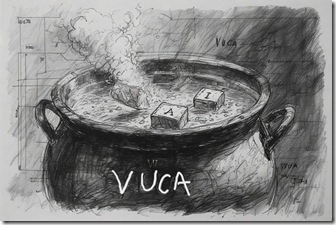You are a senior project manager in a software start-up with around 100 engineers. The start-up has had an initial round of funding from a reputed VC. In terms of quality of work, it has been an enriching but demanding environment. Over the last two years, you have a built a reputation as a highly capable and professional manager and have responsibility for multiple projects. Your compensation has been above industry average and you have been awarded ESOP as well.
One of the development projects in your care has been especially demanding and has numerous tight milestones and the payment schedule is tied to satisfactory delivery in those milestones. You and the young project team have stretched to work on most evenings and multiple week-ends. Your family – wife and young children – have been bearing the brunt of it but have been supportive. In the meantime, your relationship with your manager and the founder of the company is not as good as it was. In fact, your manager is not backing you up and is merely acting as a postman and passing on the pressure from the customer. You are beginning to feel weary and have decided to look out for a change. You have attended a few interviews and some offers are looking to materialize soon, according to the recruitment consultant. You are required to give one month notice but the prospective organizations are hoping that you can join sooner, if selected.
At this stage, the founder of the organization calls you into his office for a private conversation. He confides in you that the company funds are depleting and the employee salary payment for the next few months would depend on the realisation of timely payments from this project – which in turn are tied to various milestones. He is seeking your support over the next six months by when the next round of VC funding would be available.
You walk out of the founder’s office confused and in a state of dilemma – “What would be the right thing to do – to stay or to leave?”
Suggested solution:
As with many such decisions, there is no one answer that fits all. Some may choose to stay and some may choose to leave – both could be right decisions from the individual’s perspective. However, we can discuss a decision-making process that could be useful for all.
Obvious approach to decision-making is the use of your head – the intellectual process that uses logic. Second approach to decision-making is the use of your heart – the emotional process that uses your emotions and values. Third approach is the use of your gut – the intuitive aspect of decision-making –your unique compass.
Let us take our situation and see how this idea can be applied – intent being illustration rather than a comprehensive analysis.
THE HEAD
We could intellectually look at the merits and demerits of the each decision.
Merits of staying could be like – a) you win some brownie points with the founder and your relationship would improve; b) when the VC funding becomes available, you may be rewarded; c) you will have the professional satisfaction of achieving these important milestones and contributing to a bigger cause;
Demerits of staying could be like – a) you will continue to spend less time with family; b) VC funding may take longer than 6 months – you may have to endure the ordeal for much longer; c) you may miss a new job opportunity that is exciting for you.
THE HEART
The question here is: How do you feel about each alternative?
You were already feeling weary and that’s why you decided to apply for new roles. How do you feel about staying for another six months? How strong are your feelings – are you just tired or desperate?
What does your family think and how does that make you feel – guilty or just concerned?
How do you feel as a professional about leaving now – would you feel like a deserter or a mercenary? After all, you have gained professionally working in this company.
THE GUT
Gut is an intuitive source for decision-making. There is no explanation for why you have the gut feeling. It is the sum of all past experiences as applied to the current situation. It is very unique to you as an individual.
It may ask you stay for six more months or suggest that you leave now.
ALIGNMENT
Decisions are easy when these three align. I found head, heart and gut do not necessarily align all the time. Sometimes, we may listen to our heart and rationalize our thought process and other times we may just go with our gut. In this case, I may feel strongly about my professional commitment and am willing to rationalize the staying decision with appropriate logic. Alternatively, I may feel strongly about spending more time with my family and am willing to let go of my job – ‘after all, one works for the family’ – mind will say.
When your head and heart say ‘leave’, your gut may say ‘stay’ and something better will come out of it! It does not tell you why should stay. It may be as vague as – “something in your founder’s eyes”.
CONCLUSION
While there is no right answer, a self-aware person would be able to understand the preferences of head, heart and gut and take the decision with full knowledge. It is ok to stay and it is ok to leave!




